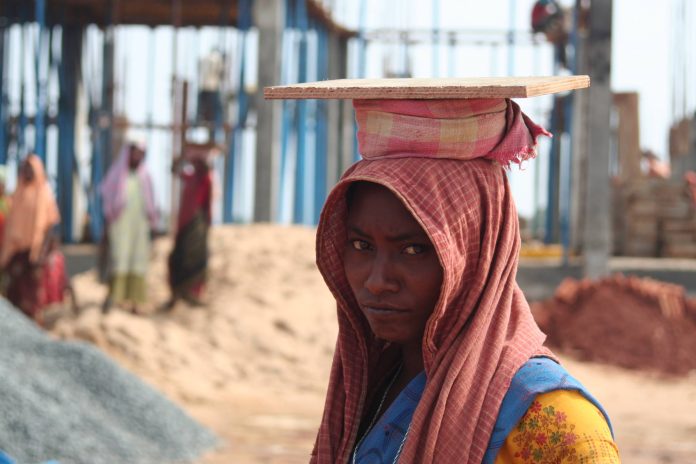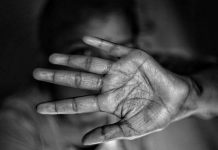This article is written by Khyati Basant, pursuing BBA LLB from Symbiosis Law School, NOIDA. This article describes the challenges faced by the marginalised groups and the reliefs given to them.
Table of Contents
Introduction
The World Health Organisation proclaimed COVID-19 a pandemic and public health emergency. Coronavirus spreading across the world started from China and began affecting people at greater scale. The World Health Organization’s announcement of COVID-19 as a global pandemic on March 11 is entirely warranted, as 192 countries are currently in the midst of this epidemic. It has also influenced developed Western countries as well as emerging ones. With around 5,939,234 cases now, the Coronavirus pandemic has grabbed the world. The lethal infection has caused about 367,255 people to risk their lives. About 1,90,962 cases have been reported in India. The pandemic has been increasing day by day and this leads to economic and social crisis due to loss of job and unemployment issues, so is the case with the marginalised sections of the society.
The impact of this virus is predicted to be even more devastating to developing economies like South Asia, with most Asian governments spending little on health per capita and COVID-19 cases growing in the region and steeper in India than their Asian peers. Just as in a situation, the increasingly disadvantaged, removed, oppressed just insecure persons, classes, and populations would face greater suffering, both in terms of their vulnerability and failure to deal in protective steps such as lockdowns.
Marginalised sections
Marginalization implies, by those in control, that a particular person or a group of people is made to feel less important. Marginalized individuals are pushed into the fringe or outskirts of society. That, in effect, robs them of the services and resources which non-marginalized parts of society have enjoyed. Marginality is a worldwide phenomenon which affects millions of people. Marginalized individuals have very little control of their lives and the opportunities that they have at their fingertips. This results in making them disabled to delve into the contribution that they make to society.
Marginalization ‘defines the implicit behaviour or behaviours of human cultures where individuals are disqualified, i.e. oppressed, that they view as unwanted or without useful use. Such individuals, who are oppressed, are classified as ‘marginalized communities’ for their security and inclusion into a Class or Community. Throughout sociological, cultural, and political discussions, marginalisation has dimensions. In ways that range from genocide/ethnic cleansing and other xenophobic acts/activities at one end of the continuum to more common economic and social struggles at the unitary level, the marginalization that manifests itself.
In India, lockdowns were placed to curtail the spread of coronavirus, putting vulnerable workers such as domestic workers, migrant workers, daily wagers, scrap shoppers, car and truck drivers, vegetable and fruit vendors, sex workers, waiters, delivery boys and employees among thousands of others at risk of malnutrition.
While the government declared relief for the poor populations, the danger of imminent starvation came first and was much more terrifying than the danger of coronavirus contracture.
Effect of COVID-19 on the marginalised sector
Many marginalised groups are neglected during the lockdown in India. Indian domestic workers are now facing increased hardships and financial challenges with the stifling of economic activity brought about by the prolonged nationwide lockdown. The shutdown has now affected vulnerable populations overwhelmingly as a result of the loss of jobs and lack of food, housing, health and other necessities. The government does have a duty to protect people’s health and well-being, but some of these measures have left hundreds of thousands of out-of-work migrant workers homeless, closing down rail and bus lines. In reality, their employers convince them to continue working, and they are threatened with potential replacement.
The widespread closing of state boundaries has affected the availability of vital commodities, resulting in instability and fear of shortages. Thousands of homeless people need housing. Police efforts to prosecute those breaching directives have allegedly contributed to harassment of those in need. Most domestic employees have been stripped of their employment without sufficient compensation and some have taken wage cuts in the months that followed. Given that these workers have restricted themselves to no resources or financial assistance, the risk that their lives will be seriously impacted by the domino effect of rising unemployment and loss of income is exceedingly strong.
Domestic work falls within the category of non-registered and unregulated work, and these workers in most cases have been unable to access government relief packages to deal with the current crisis. This effectively means that most domestic workers are not even recipients of the food grain allotment system of the state government, leaving them with minimal access to benefits related to health. Problems of loss of income and lack of social security are the prospect of harassment and eviction by domestic workers from their rented accommodations. This may be attributed either to their incapacity to pay rent or to the social stigma applied to these workers, which marks them as potential virus carriers. It is the marginalised people who need legal security most and who are left without it.
Measure taken by the government
“The Indian government is facing an unprecedented challenge to protect over a billion tightly populated residents, but stepped-up measures to deter coronavirus transmission in India need to provide rights enforcement,” said Meenakshi Ganguly, Human Rights Watch’s South Asia representative. The government must take immediate measures to securitise stranded migrant workers. State governments across the country should set up shelters and community kitchens for those most in need immediately and take measures to ensure physical distance. With more than half of India’s workforce employed in the informal sector, and one-third working as casual workers, the authorities must make use of the maximum resources available to ensure service delivery. Human Rights Watch is deeply concerned about victim harassment and a spike in gang activity. Police in several states including Punjab, Rajasthan, Haryana, Uttar Pradesh, Maharashtra and Andhra Pradesh arbitrarily punished or publicly shamed people and forced them to hold posters.
Officials marked homes in Delhi, Chandigarh, Maharashtra, Rajasthan, West Bengal, and Uttar Pradesh where people were under quarantine, in some cases displaying their names. The Election Commission approved the use of indelible ink to stamp people for home quarantine and the government of Maharashtra said it would stamp the left hand of all those sent to home quarantine – raising their chance of violence. The government should pay outstanding wages under the Mahatma Gandhi National Rural Employment Guarantee Act for all work and expand its scope to those forced out of work. Farming communities are facing losses during harvest season and the government needs to step up procurement to protect agricultural income and save the produce. Health workers and airline staff in Uttar Pradesh, Delhi, Telangana, and Tamil Nadu faced discrimination from their neighbours, and landlords threatened to evict them, fearing they could be COVID-19 carriers. People who were quarantined, too, were stigmatized and threatened with eviction.
Legal aid
Under Section 3 of the Legal Services Authorities Act, 1987, the National Legal Service Authority (NALSA) was established. NASA aims to monitor and supervise the provision of legal aid as described in Section 2(1)(c) of the Act. Section 12 of the Act sets out the category of persons eligible to make use of these legal services. NALSA also disburses funding and grants for the implementation of legal aid programs and programmes, to NGOs. NALSA released a directive requiring the State Legal Service Authority (SLSA) to support those in need to offer legal assistance. The value of legal assistance at these incidents is paramount. Judicial aid and facilities are known as “primary services” in other nations, such as South Africa and Kenya, and they can be offered easily to the citizens of the country. The pandemic, and the resulting lockdown, caused the poor and underprivileged parts of society the largest amount of suffering. We got the hardest hit out of anything from calories to critical life needs. NALSA referred to the concerns of the poorest and weaker sections of the society in this situation of extreme urgency.
Legal service authorities’ active role has ensured a flow of assistance from the state into the people. Legal service officials took constructive care at this period of public health emergencies and responded to all complaints. As well as facilitating legal assistance to the poor and the weaker sections of society, NALSA has ensured through its competent workforce that essential items such as food, masks, and sanitizer reach all people. NALSA, as India’s highest legal service agency, has accomplished its mission and helped the government ensure health and protection across regional borders for everyone. Through the support of its team of panel lawyers and paralegal volunteers, as well as DLSA ‘s continuing activities, NALSA is also seeking to coordinate resources to provide food for people and aid vulnerable migrant workers who are stuck without a place to go. Specific helpline numbers have been provided to allow these people to call for support.
Also, paralegal volunteers undertake the work of food and mask distribution to the remotest of the areas with the help of local administrations. The Delhi State Legal Service Authority has organized camps to distribute food packets, pulses, rice, and similar items to the poor throughout its region.
Besides, paralegal volunteers undertake the work of food and mask distribution to the remotest of the areas with the help of local administrations. The Delhi State Legal Service Authority has organized camps to distribute food packets, pulses, rice, and similar items to the poor throughout its region.
One of the recurring issues over the initial lockdown phase was the increase in incidents of domestic violence. To tackle the problem, NALSA asked all SLSAs to coordinate with the One-Stop Centers developed by the Ministry of Women and Child. The paralegals and volunteers will provide legal assistance to victims by filing cases, filing affidavits and informing them of their rights.
Citizens for Justice and Peace (CJP) has once again stepped forward, this time in reaction to the shutdown triggered by the Covid-19 pandemic that left several poor and marginalized societies desperate for necessities. CJP immediately stepped onto the ground with partner organizations such as Prayas – Ek Koshish, the Jimmy Foundation, Haq Hai and the Habitat and Livelihood Welfare Association (HALWA) among others, with the mission of assisting some 3,000 families in the Metropolitan Region of Mumbai (MMR). CJP has helped deliver humanitarian services to more than 11,000 people so far. Those include about 6,000 migrant worker families from Bihar, Jharkhand, West Bengal, Uttar Pradesh, Telangana, Andhra Pradesh, and Maharashtra inland.
CJP also provided supplies to 2,000 more low-income families of zardozi and radio workers, Northeastern daily wage workers facing social ostracism, single-woman households and widows. We partnered with the Bhakhar Foundation, the Tangkhul Welfare Society Mumbai and many other groups working with transgenders, the elderly and orphans to help these people.
Chandigarh’s SLSA also makes shelter and rations available to the poor. Kashmir’s SLSA has called on SLSA Chandigarh to provide food to its 15 migrant workers in Chandigarh who are stuck in. Similarly, Mizoram’s SLSA requested that SLSA Chandigarh provide relief to 120 Mizoram students stranded at Nayagaon.
These are just a few of the initiatives that the government and the legal services authorities have taken to ensure justice and help people sustain human life. The acts highlight the importance of legal aid and programs in disadvantaged and poorer parts of society to guarantee dignity and survival on the ground.
Conclusion
Coronavirus spread and this unprecedented lockdown posed serious challenges for governments and organizations around the world. In this modern world, the provision of basic amenities includes food, water, clothing and justice. Legal service authorities’ active role has ensured a flow of assistance from the state into the people. Different numbers of helplines and numbers of distress help people access to aid, both essential and legal. Incidents of domestic violence are on the rise, and with the aid of the Ministry of Women and Children, victims are guaranteed access to the justice system. In addition to the multiple vulnerabilities that already existed in the sector, the nationwide lockdown has exacerbated the plight of domestic workers. And, had there been a detailed legal framework specifically tailored to protect the interests of domestic workers, their hardships would have been much easier to manage in the present lockdown. The pandemic should serve as a reminder to the Indian government to consider the matter with the utmost urgency, no matter the time lost.
References
- https://sabrangindia.in/article/cjp-against-covid-cjp-steps-ground-provide-relief-most-marginalized-amid-covid-19
- https://www.news18.com/news/india/not-kowtowing-to-crisis-sex-workers-distribute-ration-medicines-and-hope-amid-covid-19-lockdown-2588977.html
- https://thewire.in/law/criminal-law-coronavirus-pandemic
- https://www.hrw.org/news/2020/03/27/india-covid-19-lockdown-puts-poor-risk
LawSikho has created a telegram group for exchanging legal knowledge, referrals and various opportunities. You can click on this link and join:
 Serato DJ Crack 2025Serato DJ PRO Crack
Serato DJ Crack 2025Serato DJ PRO Crack











 Allow notifications
Allow notifications


